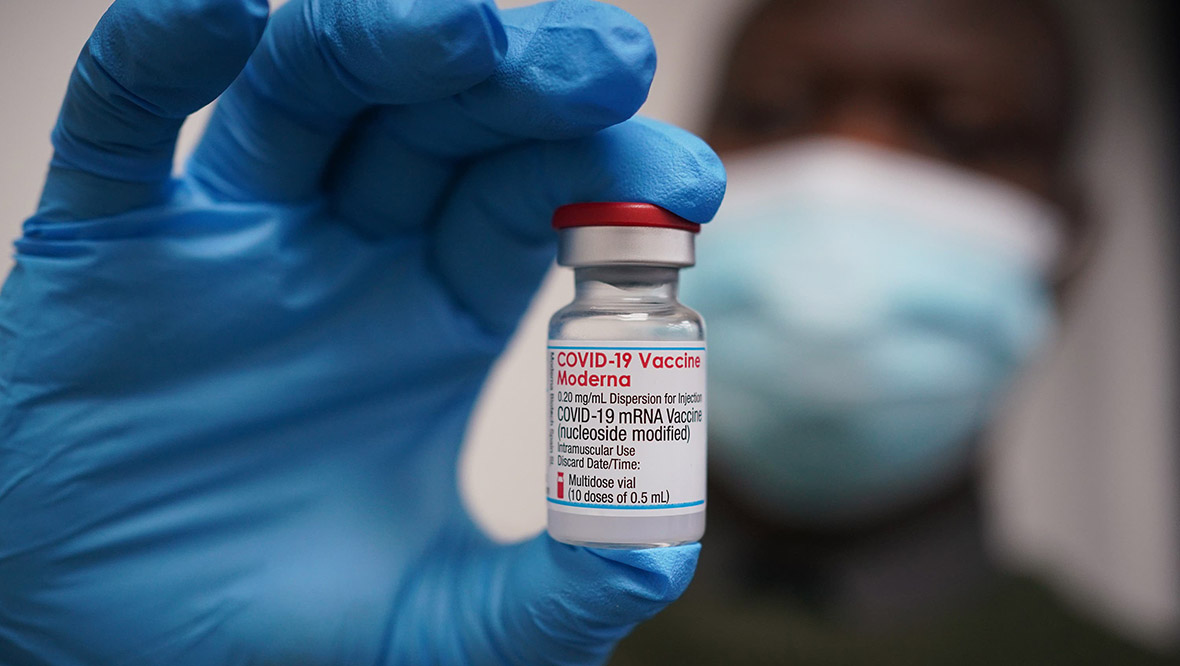Infection
New Covid variants being monitored amid ‘uptick’ in hospital admissions
The number of Covid infections has risen in Scotland over the summer – and new, transmissible variants could be to blame, a health expert has said.
Edinburgh University professor Linda Bauld, the Government’s chief social policy advisor, said Scotland is in a “fairly stable” position in dealing with the virus overall despite a rise in hospital admissions.
But she said Covid remains “quite unpredictable”, with scientists identifying new strain Eris – or EG.5 – a descendant of omicron.
It was identified in the UK on July 31 but is currently being monitored by the World Health Organisation.
Professor Bauld told STV News: “We’re in a fairly stable position. There has been really low levels in waste water over the last two months.
“But what we’ve started to see is an uptick in hospital admissions, which is happening across the UK.
“We think there may be a bit more infections around the last few weeks, which may be due to the weather, different behaviours – but we also might see the vaccines waning, which we expected at this time of year.”
She added: “I think a lot of people have forgotten about Covid. The pandemic is no longer with us but the virus still is. It’s going to keep changing.
“We’re going to continue to see new mutations, new variants. Not ones that are causing more severe disease, but we need to remember that we don’t have a stable pattern of Covid at the moment.
“It’s still quite unpredictable.”
It comes after scientists warned another deadly virus has a better than one in four chance of becoming a global pandemic within the decade.
The unknown virus with a potential to cause serious global damage is referred to by the World Health Organisation (WHO) as ‘Disease X’ – and its threat is growing ever more potent.
Experts around the globe are developing protections against it and the UK government has just invested £65m into a vaccine facility which could tackle it.
Disease X is the name given to any as yet unknown pathogen which in theory has the potential to cause a global pandemic.
Genomic sequencing is continuing around the world and the UK to identify new variants and test how effective the vaccine is in tackling the virus.
“EG.5 might be more transmissible, but it is not making people sicker. We just have to watch, monitor and respond when we become concerned,” Professor Bauld added.
 iStock
iStock“There is a lot of discussion of Disease X and future pandemics. We will have another pandemic and we are preparing for that now.”
This year’s winter flu and Covid-19 boosters will focus on “protecting those at highest risk of becoming seriously ill”, Scotland’s public health body has said.
Public Health Scotland (PHS), in conjunction with the Scottish Government, revealed its winter vaccination programme – with healthy under-65s will no longer routinely offered a Covid-19 booster shot – whereas last year all people over 50 were given the opportunity.
The decision follows advice from the Joint Committee on Vaccination and Immunisation (JCVI).
PHS announced everyone over 50 and those with certain health conditions will be offered a flu vaccination.
People aged 50-64 with no underlying health conditions will be called forward for appointments from September 4.

